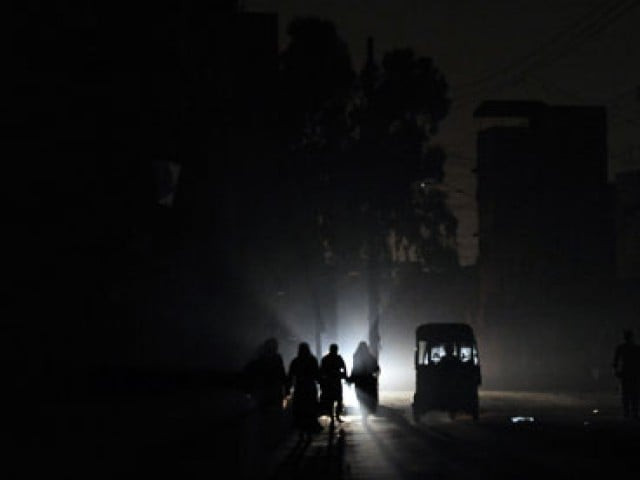A dark spell: 43-hour power shutdown in Gilgit agitates residents
Entire region enveloped in darkness from 5pm on Friday till Sunday afternoon.

The worst power breakdown hit Gilgit on Friday that lasted 43 hours, hampering routine life in the region’s capital city.
“It is unbearable. The region’s business has been crushed by the power outage. People must take to the street against this inept government,” said Zakir Hussain, who runs a welding shop in Gilgit, “What would become of people earn daily wages and have to depend on electricity for their work every day.”
The entire region was enveloped in darkness from 5pm on Friday till Sunday afternoon, when electricity was finally restored. The situation in other parts of the region, including Astore, Skardu, Ghizer and Hunza-Nagar valleys is similar to that in Gilgit, where 10 to 15 hours of power cuts are experienced regularly.
The International Human Rights Observer (IHRO) Gilgit office issued a statement on Saturday criticising the government for failing to restore power in Gilgit.
“There has not been electricity in Gilgit for the past 28 hours, which has troubled the residents,” said the statement issued by IHRO Gilgit-Baltistan (G-B) Coordinator Farooq Ahmed.
People from all spheres of life were troubled by the longest power outage.
“The past two days were extremely hard as it is not easy to study in candlelight,” said Afaq Ahmed, a student preparing for his upcoming Matric examinations.
Based on the current power crisis in the city, Munir Ali, a social activist, fears an even more frightful winter. “If the situation in October is this bad, you can imagine what it will be like from November to March,” he said.
The period between November and May is the worst in G-B, with the region experiencing up to 22 hours of power outages as the temperature drops between -12 and -15 Celsius.
According to official statistics, G-B has the potential to produce over 45,000 Megawatts of electricity. However, due to lack of investment in the power sector, people are becoming increasingly depending on wood from the forests and liquefied petroleum gas.
Earlier this week, the Water and Power Department in Gilgit arranged a visit for journalists to Naltar, the site of an 18-megawatt hydel power project, updating them of the factors hindering power supply.
Water and Power Executive Engineer Hamid Hussain told journalists that last year’s floods filled up the 18 kanal water reservoir with sand and silt, decreasing its water storage capacity by 35 per cent.
“We have started to clean the reservoir and hope it will be completed in a month,” he said, adding that the existing power production is 17 megawatts, while the demand had risen up to 24 megawatts.
He said the shortage of water in rivers and lakes during November to March would decrease power production by 8 megawatts.
Published in The Express Tribune, October 24th, 2011.



















COMMENTS
Comments are moderated and generally will be posted if they are on-topic and not abusive.
For more information, please see our Comments FAQ